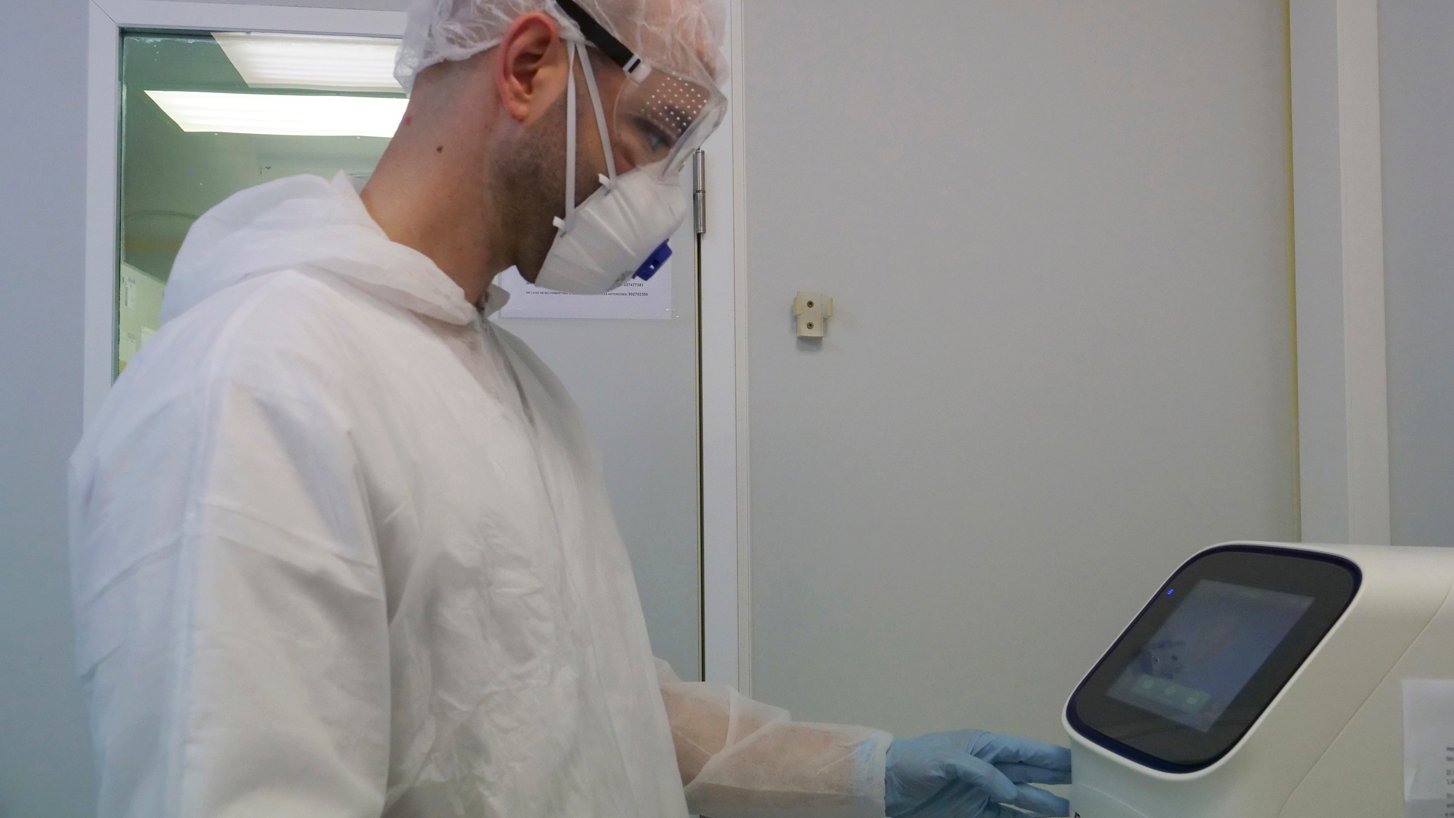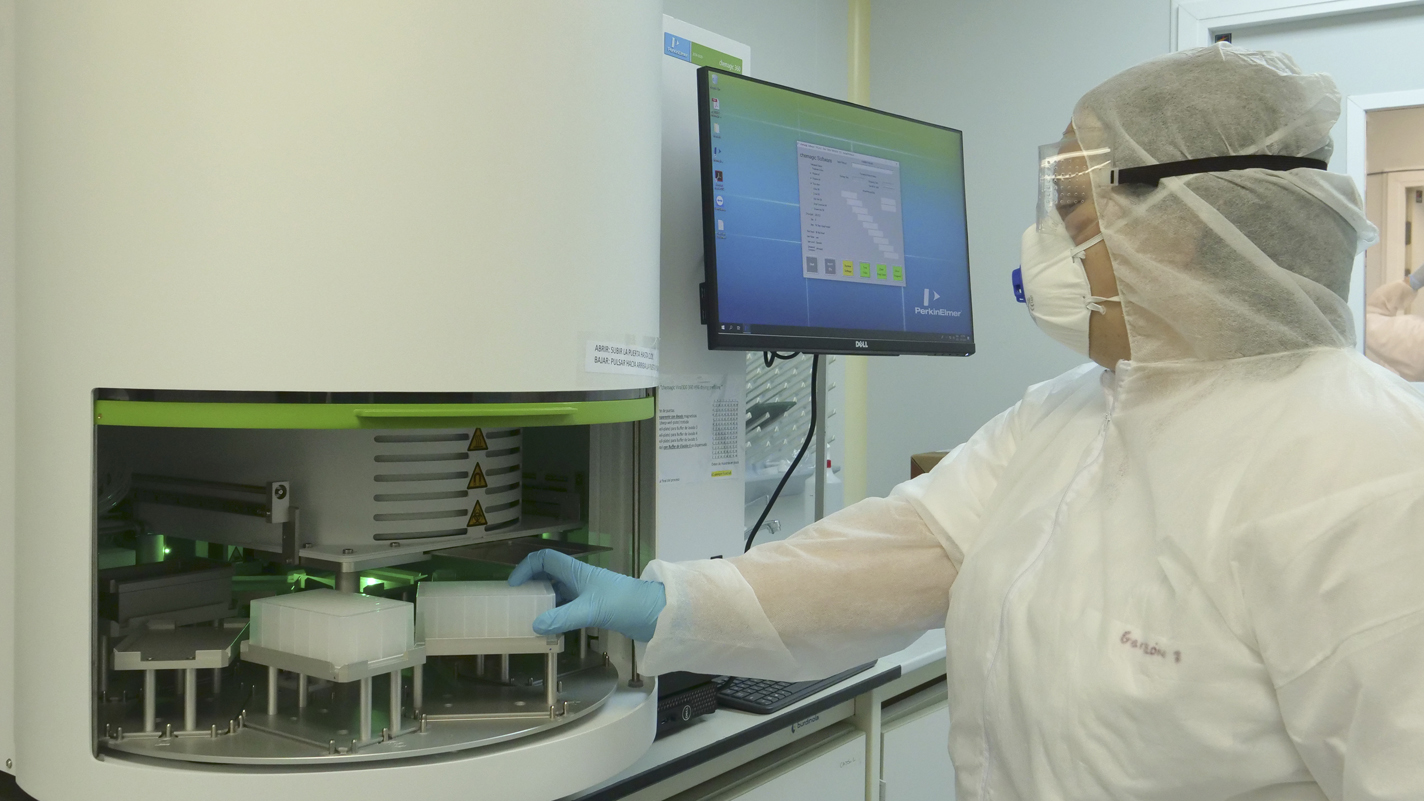The Carlos III Health Institute has certified the COVID-19 PCR diagnostic service set up by the University of Valencia and the biotechnology company Epidisease. The laboratory, located in the Science Park of the academic institution, will be able to provide service to the Conselleria of Universal Health and Public Health in the analysis of samples from Valencian hospitals.
The capacity of the Spanish regions to carry out diagnostic tests on COVID-19 using the RT-PCR (Polymerase Chain Reaction) technique is one of the main factors in guaranteeing progress in de-escalation towards the new normality projected by the government. PCR testing is essential to keep infections at the local level while minimizing the effect of a possible upsurge. The aim is to prevent residual transmission chains from becoming a second serious wave.
These tests have a sensitivity of 99% and detect the presence of coronavirus in individuals with active infection. It is currently the most reliable test to detect asymptomatic people or those in the days before the onset of symptoms, as well as to confirm the infection of the SARS-CoV-2 virus.
The certification provided by the Carlos III Health Institute, which depends on the Ministry of Science and Innovation, allows the laboratory to support the Conselleria of Universal Health and Public Health of the Generalitat Valenciana in the analysis of tests from hospitals in Comunitat Valenciana. "In 24 hours we can send the results of the test to the Health Department so that they can be communicated to the patients and act according to protocol," underlines José Luis García, executive director of EpiDisease, and Salvador Mena, professor in the Physiology Department at the University of Valencia, both of whom are responsible for the implementation of this initiative.
Located in the Cavanilles Institute of Biodiversity and Evolutionary Biology at the University of Valencia, in the Science Park of the academic institution, the laboratory has an automated robot for extracting RNA and a PCR machine, which allows 1,200 samples to be analysed daily.
 Laboratory technician with the PCR machine. Source: FPCUV
Laboratory technician with the PCR machine. Source: FPCUV
The new service is based on a collaboration between the UV and the biotechnology company for the joint implementation of the laboratory. "Since the beginning of this crisis and in line with our commitment to responsibility and knowledge transfer to society, the University of Valencia has been providing all possible resources to collaborate with the health authorities in overcoming this pandemic", says the Vice-Principal for Innovation and Transfer of the academic institution, María Dolores Real. "Making a laboratory with the required level of biosafety available to the Ministry of Health and doing so with a spin-off recognized by our institution is a matter of social responsibility," she said.
Epigenetic research
EpiDisease is a University of Valencia spin-off dedicated to epigenetic research and also based in the Science Park. The company develops innovative services and products for the diagnosis and treatment of human diseases. It is currently part of the private group Alianza Covid-19, made up of biotechnology companies and laboratories with experience in PCR diagnosis with the aim of combining their capacities to offer reliable COVID-19 tests on a massive scale.


